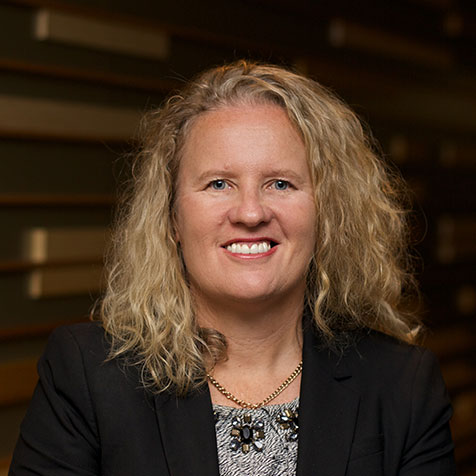Loading component...
At a glance
- The Monitoring Group comprising international organisations and financial regulators has proposed a new governance structure for global standard-setting in audit and ethics to further the public interest and improve audit quality.
- The reforms are intended to limit the perceived influence of any one key stakeholder, including the accounting profession, in audit and ethics standard-setting, by establishing standard-setting boards that exist legally outside of IFAC, and by having a more clearly specified multi-stakeholder membership of the boards.
- The source of long-term, sustainable, multi-stakeholder funding for the new model, to pay board members and increase staff numbers, is not part of the Monitoring Group proposals and remains unresolved.
By Gary Anders
The Monitoring Group comprising international organisations and financial regulators did not pull any punches in July, when it unveiled its blueprints to rebuild the governance structure behind the global setting of audit and ethics standards.
In its role of advancing public interest in international audit standard-setting and audit quality, the body framed a series of recommendations that, it stated, would significantly change the status quo.
The Strengthening the International Audit and Ethics Standard-Setting System report followed five years of extensive outreach and detailed discussions with regulators, audit and ethics standard-setting groups and other key stakeholders around the world, with almost 200 submissions being lodged by a range of stakeholders, including CPA Australia.
“The future structure, governance and process of standard-setting and funding goals of the international audit and ethics standard-setting system as outlined in the recommendations represent significant enhancements to the current structure,” the Monitoring Group noted.
“These key enhancements to the current structure will strengthen the standard-setting process, which should result in standards that are more responsive to the public interest and in turn lead to improved audit quality.”
The Monitoring Group’s key recommendations have the principal objective of achieving the following:
- an independent and inclusive multi-stakeholder standard-setting system
- reinforcing the consideration of the public interest within the standard-setting process and throughout the full cycle of the standards’ development, with enhanced independent oversight and standard-setting guided by the Public Interest Framework
- fostering the development of timely, high-quality standards that respond to an accelerating pace of change
The report includes recommendations aimed at improving the process by which global audit, assurance and ethics standards for the accounting profession are developed and issued in the public interest.
These include proposed changes to the existing structure, governance, processes of standard-setting and potential funding of the international audit and ethics standard-setting system.
Among other things, the Monitoring Group has focused its perceived need for reform of the role that the accounting profession plays, through the International Federation of Accountants (IFAC), in funding and supporting standard-setting boards and board nominations.
It also examined the composition of the standard-setting boards and the proportion of members who are considered to be practitioners.
Restructuring the international framework
The Monitoring Group says it wants all levels of the governance and oversight framework to be subject to transparent accountability processes, including regular effectiveness reviews and enhanced reporting in the public domain.
Specifically, it recommends retaining a “three-tier model, with the roles and responsibilities of each level clearly delineated and properly balanced, to demonstrate transparency and accountability”.
However, the Monitoring Group recommends that the International Auditing and Assurance Standards Board (IAASB) and the International Ethics Standards Board for Accountants (IESBA) be replaced with two new multi-stakeholder standard-setting boards for audit and assurance and ethics.
“The issues that gave rise to this really all evolved from concerns over audit quality and, within that, concerns over whether auditing and ethics standards were being set in the public’s interest.”
The Monitoring Group argues that these boards should both be independent from IFAC.
One board will continue to be responsible for setting audit, review, assurance and quality control standards, while the other board will continue to be responsible for setting international ethics standards for professional accountants, including auditor independence requirements.
The standard-setting boards will also continue to be overseen by the Public Interest Oversight Board (PIOB), will operate under different rules and will allow for board member remuneration.
Accounting representation curtailed
The Monitoring Group has sought to address perceptions that stakeholder confidence in the standard-setting process has been adversely affected as a result of the perceived influence of the accountancy profession.
It has recommended that the number of accounting practitioners – those who currently work in an accounting firm or have worked in a firm within the past four years – able to sit on either of the new standards boards be limited to less than one-third (five) out of a total of 16. Currently, there are a maximum of nine practitioners permitted on a board of 18.
This could result in standards being approved without practitioner support, based on the Monitoring Group’s recommendation of a two-thirds voting majority, being the same majority currently required.
The Monitoring Group states: “The PIOB’s governance responsibilities will include the nomination and appointment process for board members, protecting the boards from undue influence, such as commercial, political and economic influence, in the public interest and overseeing the administration that supports standard-setting, including the ethics and conduct criteria for the PIOB, boards and staff.”
Broad support from regulators and the accounting profession
Key stakeholders around the world have been broadly supportive of the Monitoring Group’s recommendations for a restructuring of the boards that set international standards. Alex Ooi FCPA, executive officer Audit Oversight Board, Securities Commission Malaysia, says, “What has been announced by the Monitoring Group is something that a lot of regulators have been pushing for”.
“Many will argue that the profession itself is the one that sets the standards. Hence, the public interest may not be well served despite the current existence of the PIOB, which resulted in the recommendations by the Monitoring Group for this major revamp of the system,” Ooi says.
However, some, particularly in the profession, point to potential complications around the reduced role of accounting practitioners under the proposed new structure and around how future funding would be sourced.
Although the reforms are addressing an important issue, Ooi says the proposed composition of the board, with no more than five out of 16 members being practitioners, can prove challenging.
"Global audit, assurance and ethics standards are the bedrock on which our profession is built, and an important safeguard in protecting the public interest that is part of our professional mandate.”
“You can’t have people on the board who don’t have the experience and knowledge of the profession.
“I find that, having lived both roles myself, as a practitioner before and now a regulator, I can see the points from both sides.”
Bill Edge, chair of the Financial Reporting Council (FRC), says, “The issues that gave rise to this really all evolved from concerns over audit quality and, within that, concerns over whether auditing and ethics standards were being set in the public interest.”
The FRC is responsible for overseeing the effectiveness of the financial reporting framework in Australia on behalf of the federal government, with its key functions including the oversight of the accounting and auditing standard-setting processes and providing strategic advice in relation to the quality of audits conducted by Australian auditors.
Edge says the FRC welcomes the introduction of a public interest framework for standard-setting.
“We must learn from the final paper, and we will indeed take on the principles to the degree possible in Australia, being around developing standards in the public interest, developing standards on a timely basis, seeking forms of funding other than from the accounting profession, and also having multi-stakeholders on the boards.”
Addressing the issue of independence
A key area of focus for the Monitoring Group has been the perceived influence of the accounting profession.
This is both in terms of accounting practitioner representation on the boards that develop international audit and ethics standards, and in the provision of funding from the accounting profession for those same boards.
Greater perceived independence is largely behind the Monitoring Group’s recommendations.
“Global audit, assurance and ethics standards are the bedrock on which our profession is built, and an important safeguard in protecting the public interest that is part of our professional mandate,” says IFAC’s CEO, Kevin Dancey, in response to the Monitoring Group’s recommendations.

These are also sentiments echoed by Professor Roger Simnett, chair of the federal government’s Auditing and Assurance Standards Board, which is responsible for developing, issuing and maintaining auditing and assurance standards.
“Pleasingly, the Monitoring Group’s reforms confirm the importance of two independent and technically expert boards with effective oversight to demonstrate transparency and accountability,” Simnett says.
“The reforms maintain many of the strengths of the existing system, while including arrangements to improve the independence of the IAASB and IESBA, further clarify roles of the standard-setting boards and maintain the boards’ technical experience.”
Australia-based Rachel Grimes, immediate past president of IFAC and a director of the Accounting Professional and Ethical Standards Board (APESB), describes the developments as “the start of the beginning”.
“I believe having this process finalised is important. It’s really important that we continue to have high-quality standards, and that’s what we’ve always got to protect,” she says.

“Anything that enhances and is seen to enhance the independence of this [process] is a good thing, but it’s also important we make sure this still looks after our small and medium practitioners.”
She says that separating IFAC from the two new standard-setting boards will enhance independence.
“It will allow [IFAC] to have a voice in the standard-setting process, whereas they couldn’t before, because they were seen as not independent if they wanted to complain on behalf of the member bodies. It will really allow them to have that voice.”
Grimes is confident that IFAC will still have a good relationship with the new standard-setting boards. “It’s taken us five years to get to this point. We can now move forward. It’s no longer a distraction, and if this is the agreed model, we can get behind it and make sure it works,” Grimes says.
Jessie Wong FCPA, chair of CPA Australia’s External Reporting Centre of Excellence, adds: “The auditing profession is looking to the reforms to continue to ensure high-quality auditing standards that are recognised and trusted by all stakeholders, which is indispensable.”
However, she cautions that audit practitioners will see less direct participation on the new auditing standards board.
“Under the new model, appointments to the board will be limited to five audit practitioners,” Wong says. “As at June 2019, the board has eight audit practitioner board members.
“It is critical for the auditing profession to be engaged in the next steps of working out the foundational details of the transition activities that will cover specifics of criteria on nominations, skills matrices and conflicts policy. The success of the reforms hinges heavily on the detailed execution.”
Overcoming the funding conundrum

On the issue of where funding for the new standard-setting boards will come from, there is broad consensus that sourcing capital from outside of the accounting profession remains a stumbling block.
“Of course, in theory, everything seems good and nice, but in practical terms it still goes back to the funding and the dollars,” Ooi says.
“Sustainability of the funding for the boards will certainly be an issue to be considered and must be carefully taken care of as we move to implement the current recommendations of the Monitoring Group.”
Edge says the funding issue remains difficult because, as yet, no substantial alternative funding sources have been found.
“Part of the concern was that the two standards boards internationally, the Auditing Standards Board and the Ethics Standards Board, were fundamentally funded by IFAC and the big accounting firms,” he says.
“And there was a concern that by funding them they were not independent.
“I agree with that. I think it would be excellent if funding came from another source, but in three years they [the Monitoring Group] have failed to come up with a funding model that is different.”
Edge says the FRC would welcome funding from outside the accounting profession.
“In Australia, our Auditing and Assurance Standards Board is funded by the government. The APESB is funded by the accounting bodies, and that could therefore bring the same concerns that were raised internationally.
“But until we can find an alternative funding model – and that’s obviously been a three-year challenge for them internationally, which they haven’t resolved – then I think we’re in a difficult position.”
Grimes suggests the only real alternative to funding from outside the accounting profession is from governments.
“I think the regulators need to stump up some of the money for this. If they want to be independent, they’ve got to pay for that independence. That’s what it comes down to.”
The next steps in this process will take place over the coming months, with the Monitoring Group set to release the transition plan to implement its recommendations by April 2021.

